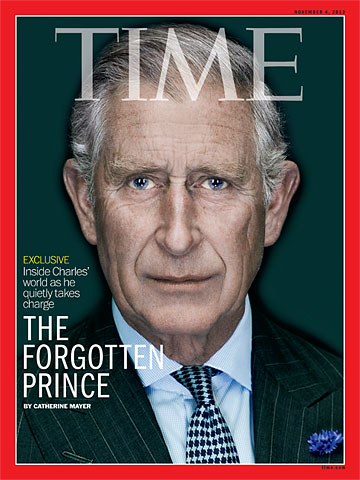
(4 of 8)
His first charity--the Prince's Trust, set up in 1976--like its founder took a while to find a core purpose. When riots in London and Liverpool in 1981 highlighted the deepening social and economic divisions of Margaret Thatcher's Britain, the trust began exploring ways to help a young underclass excluded from the affluence fostered by Thatcherite reforms. Not for the first time and most certainly not for the last, the Prince pushed the boundaries of Britain's constitutional monarchy, under which royals are expected to give a wide berth to anything that might smack of politics.
His motives weren't ideological. "A few people are lucky enough to know exactly what they want to do. But there's a hell of a lot of others who don't really know and may not be obviously academic, who suffer from low self-esteem," he says of the young people he hoped to help. For all his empathy, he seems unaware that he's also describing his own struggle.
Over its 37-year span, the Prince's Trust has given 650,000 young men and women financial and practical assistance to start businesses or embark on careers. A £1,500 ($2,410) grant from the trust enabled 16-year-old Idris Elba to join Britain's National Youth Music Theatre. He repaid that faith with interest, going on to star in hit TV shows The Wire and Luther and the forthcoming biopic Mandela: Long Walk to Freedom. James Sommerville co-founded the design company Attik in 1986 with a £2,000 ($3,210) loan, eventually selling the business to advertising giant Dentsu. "If [Prince Charles] was in industry, he would be a [Richard] Branson or the late Steve Jobs," says Sommerville, now vice president of global design for Coca-Cola.
Jobs couldn't have run Apple while also deputizing for the head of state. So, devoted gardener that the Prince is, he has been pruning and merging his charities into the 16 strongest that he can be sure will flourish with less of his attention. "Obviously, these things have grown like Topsy over the years, as I've seen what I feel needs to be done," he says. "I couldn't do it all at once. I couldn't at Highgrove just do the whole garden in one or two years. Bit by bit, you go round."
Courting Controversy
When Charles was still a young man trying to make something of himself, he sought advice widely. He rejected President Nixon's suggestion that he should be "a presence," noting in a July 1970 diary entry that "to be just a presence would be fatal. I know lots of Americans think one's main job is to go round saying meaningless niceties, but a presence alone can be swept away so easily." He listened closely to his grandmother the Queen Mother and to his great uncle Lord Mountbatten, who lavished encouragement, unlike his parents. (Last year, as the Prince showed Mum and Dad some regeneration work his charities had carried out in Burnley--northwest England's frayed former center of the cotton industry--his father was heard asking, "Why do you want to save all these terrible old places?")
